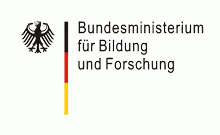BIODIVERSITY – EVERY SPECIES COUNTS!
Biodiversity encompasses all varieties of life, from the level of ecosystems (such as water, forest, soil), to the diversity of species and the diversity of genes within a species. Usually, ecologists and environmental agencies only consider a very small part of this immense diversity, such as certain indicator species, which are believed to be good predictors for the health of an ecosystem. This is due to the fact that there are relatively few specialists for many groups of organisms and morphological determination requires a high level of expertise and is often time consuming. In GBOL we have the vision of being able to capture much larger proportions of biodiversity at the species level in the near future, and thus to curb the “Erosion der Artenkenner” (also “Taxonomic Impediment” ) and to set impulses for a new science of biodiversity monitoring.
Imagine…
… a world in which you can know the name of any animal, fungus or plant, based on the analysis of small fragments of an organism like single hair strands or a tiny plant leaf:
- How much more accurate would be the fields of ecology, veterinary medicine, pest control, or marine surveillance, if we could identify even morphologically indistinguishable species?
- What are the effects of climate change on the natural landscape and biodiversity in Germany?
- Which species survive in our nature conservation areas and national parks?
- How do we monitor the effects of sudden shifts in land use, like the expanding cultivation of energy crops, on the survival of species?
- These questions remain unanswered, as long as only a minority of taxonomists can reliably identify species using elaborate morphological methods! In addition, in the age of a widespread “taxonomy crisis”, the taxonomic knowledge of species identification using morphological features is increasingly being be lost.
The establishment of a rapid, reliable and cost-effective tool for species identification to increase our knowledge of Earth´s remaining species is becoming a global need!
→ This is exactly, where the GBOL project gets involved!




